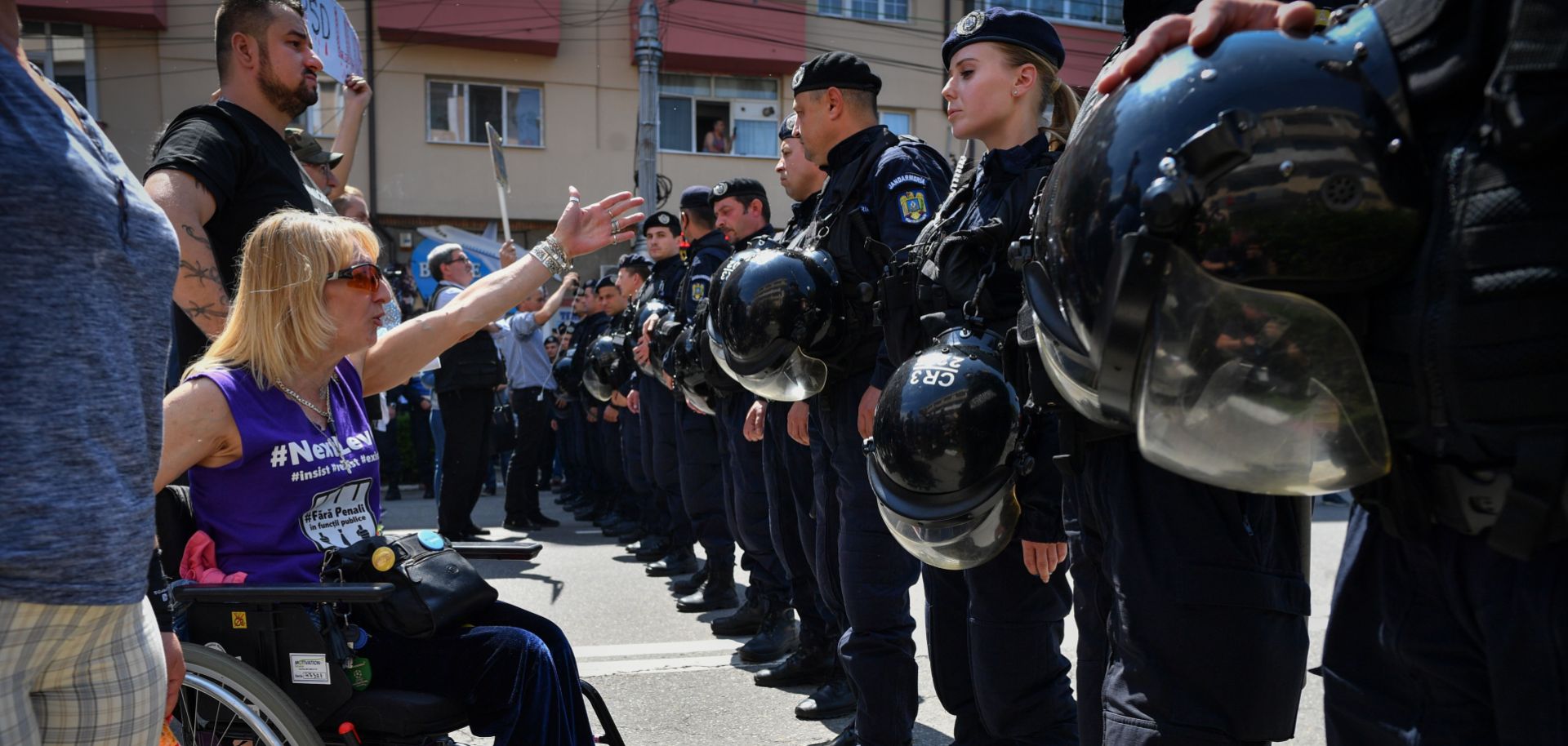ASSESSMENTS
Eastern Europe Witnesses a Quiet Revolution
Jul 15, 2019 | 10:00 GMT

An anti-government protester shouts at supporters of Romania's Social Democratic Party (PSD) coming to attend an EU elections rally in Targoviste on May 19, 2019. Protests to demand transparency might close the gap between the European Union's eastern and western halves.
(DANIEL MIHAILESCU/AFP/Getty Images)
Highlights
- Civil society organizations in several countries in Central and Eastern Europe and the Balkans are likely to continue their vocal rejection of perceived shortcomings in democracy and the rule of law in their countries.
- While these groups will not always succeed, they will become a political force that governments in the region will have to take into consideration in their policymaking.
- Anti-government feelings will contribute to the emergence of new anti-establishment political forces, which, in turn, will contribute to growing political instability and increasing political risk in the region.
Subscribe Now
SubscribeAlready have an account?
